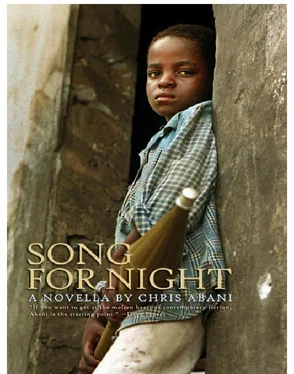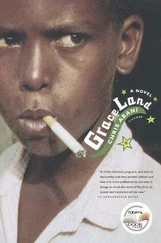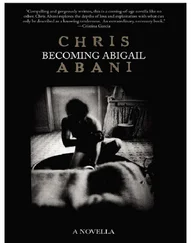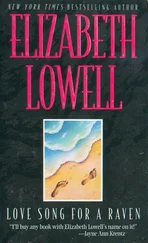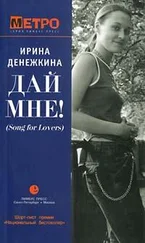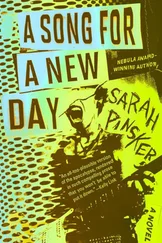Chris Abani
Song for Night
Of course, for Sarah
And my nephews — Ikenna, Obinna,
Chuks, Craig, Carl, Neven
We die only once, and for such a long time
— Molière
on any path that may have heart. There I travel
— Carlos Castaneda
Silence Is a Steady Hand, Palm Flat
What you hear is not my voice.
I have not spoken in three years: not since I left boot camp. It has been three years of a senseless war, and though the reasons for it are clear, and though we will continue to fight until we are ordered to stop — and probably for a while after that — none of us can remember the hate that led us here. We are simply fighting to survive the war. It is a strange place to be at fifteen, bereft of hope and very nearly of your humanity. But that is where I am nonetheless. I joined up at twelve. We all wanted to join then: to fight. There was a clear enemy, and having lost loved ones to them, we all wanted revenge.
If you are anything like Ijeoma you will say that I sound too old for my age. She always said that: said, because although her name in Igbo means Good Life, she died young, a year ago, aged fourteen, her wiry frame torn apart by an explosion. Since she couldn’t speak either, it might be misleading to say she said , but we have developed a crude way of talking, a sort of sign language that we have become fluent in. For instance, silence is a steady hand, palm flat, facing down. The word silencio , which we also like, involves the same sign with the addition of wiggling fingers, and though this seems like a playful touch, it actually means a deeper silence, or danger, and as in any language, context is everything. Our form of speech is nothing like the kind of sign language my deaf cousin studied in a special school before the war. But it serves us well. Our job is too intense for idle chatter.
I am part of a platoon of mine diffusers. Our job is to clear roads and access routes of mines. Though it sounds simple, our job is complicated because the term access routes could be anything from a bush track to a swath cut through a rice paddy. Our equipment is basic: rifles to protect against enemy troops, wide-blade machetes for clearing brush and digging up the mines, and crucifixes, scapulars, and other religious paraphernalia to keep us safe.
We were not chosen for our manual dexterity or because of our advanced intelligence, though most of us are very intelligent. We were chosen simply because we were small, slight even, and looked like we wouldn’t grow much in the nutrition-lacking environment of a battlefield. We were chosen because our light weight would protect us from setting off the deadly mines even when we stepped on them. Well, they were right about the former, even now at fifteen I can pass for an average twelve-year-old. But they were so wrong about the latter. Even guinea fowl set off the mines. But they must have known: that is why they imposed the silence. I finger the scar on my throat that marks the cut that ended my days of speech.
There is a lot to be said for silence, especially when it comes to you young. The interiority of the head, which is a misnomer — misnomer being one of those words silence brings you — but there is something about the mind’s interiority no less that opens up your view of the world. It is a curious place to live and makes you deep beyond your years and familiar with death. But that is what this war has done. I am not a genius, though I would like to be, I am just better versed at the interior monologue that is really the measure of age, of the passage of time. Why do I say this? Because when we say the passage of time we mean awareness of the passage of time, and when we say old, we really mean experienced. I know all this because my job requires me to concentrate on every second of my life as though it were the last. Of course if you are hearing any of this at all it’s because you have gained access to my head. You would also know then that my inner-speech is not in English, because there is something atavistic about war that rejects all but the primal language of the genes to comprehend it, so you are in fact hearing my thoughts in Igbo. But we shan’t waste time on trying to figure all that out because as I said before, time here is precious and not to be wasted on peculiarities, only on what is essential.
I have become separated from my unit. I don’t know for how long since I have only just regained consciousness. I am having no luck finding them yet, which is ironic given that my mother named me My Luck. But as Grandfather said, one should never stop searching for the thing we desire most. And right now, finding my unit is what I desire most. We were all together, when one of us, Nebuchadnezzar I think it was, stepped on a mine. We all ducked when we heard it arming — that ominous clicking that sounds like the mechanism of a child’s toy. The rule of thumb is that if you hear the explosion, you survived the blast. Like lightning and thunder. I heard the click and I heard the explosion even though I was lifted into the air. But the aftershock can do that. Drop you a few feet from where you began. When I came to, everyone was gone. They must have thought I was dead and so set off without me: that is annoying and not just because I have been left but because protocol demands that we count the dead and tally the wounded after each explosion or sweep. Stupid fools. Wait until I catch up with them, I will chew them out; protocol is all that’s kept us alive. Counting is not just a way to keep track of numbers, ours and the enemy’s, but also a way to make sure the dead are really dead. In training they told us to maximize opportunities such as these to up our kill ratio; for which we would be rewarded with extra food and money we can’t spend. I like to pretend that I do it to ease the suffering of the mutilated but still undead foes, that my bullet to their brain or knife across their throat is mercy; but the truth is, deep down somewhere I enjoy it, revel in it almost. Not without cause of course: they did kill my mother in front of me, but still, it is for me, not her, this feeling, these acts. The downside of silence is that it makes self-delusion hard. I rub my eyes and spit dirt from my mouth along with a silent curse aimed at my absent comrades. If they’d checked they would have noticed that I wasn’t dead.
The first thing I do is search for Nebu’s body. That’s the way it is laid out in the manual (although of course none of us has ever seen the manual but Major Essien drummed it into us and we know it by heart): first locate and account for friendly casualties, then hostiles; in that order — friend, then foe. The funny thing is, though I search, I can’t find Nebu’s body. There are no other bodies either, which means the enemy hasn’t been around.
Let me explain something, which on the surface might sound illogical but isn’t. We all lay land mines, the rebels and the federal troops, us and the enemy, but we do it in such a hurry that no one bothers to map these land mine sites, no one remembers where they are. That and the fact that territory shifts between us faster than sand tracking a desert, ground daily gained and lost, makes it hard to keep up. Given that the mine diffusers and scouts are always the advance guards, it is easy to see how minefields are often places where we intersect. In this case however it seems like there was no enemy, that Nebu simply got careless; or unlucky.
My first instinct is always survival so I abandon the search as quickly as I can and get out of the open. I debate whether to head for the river, fifty yards to my left, or the tree cover, seventy yards or so to my right. I choose the river. Rivers are the best way to keep close to habitation as well as the fastest means of travel. I hug the banks in the shadows and carefully observe any developments, of which I must confess there are very little. So far I haven’t met anybody and I haven’t found any traces of my unit. It is not good to be alone in a war for long. It radically decreases your chances of survival.
Читать дальше
